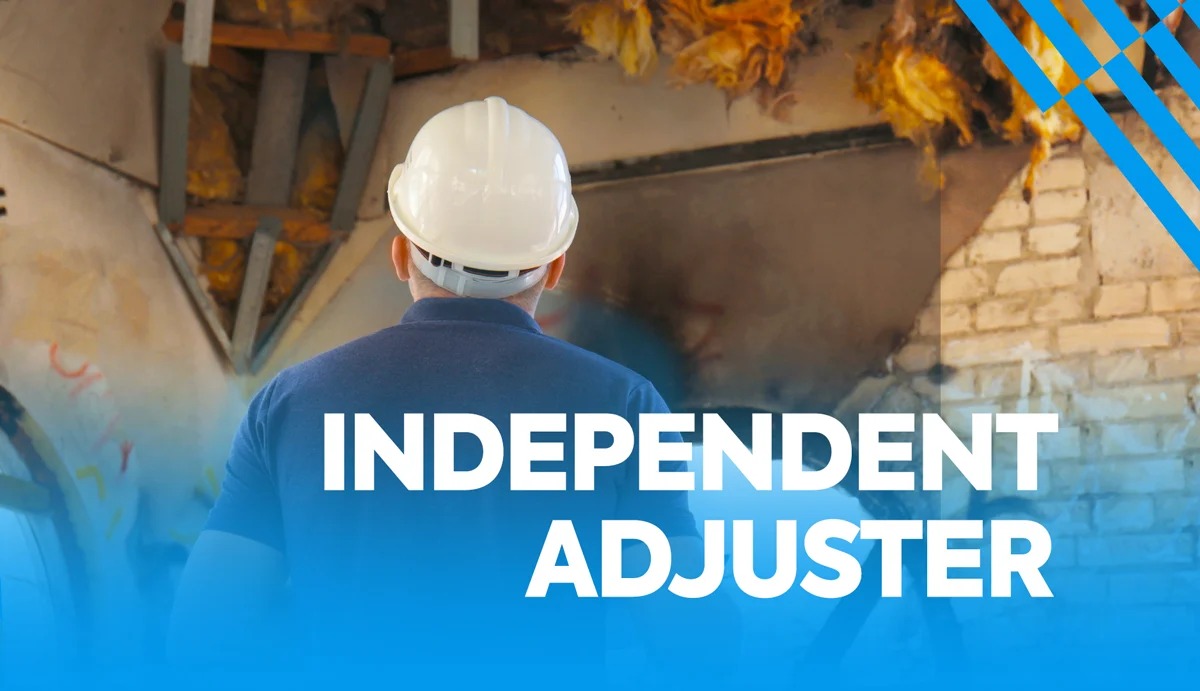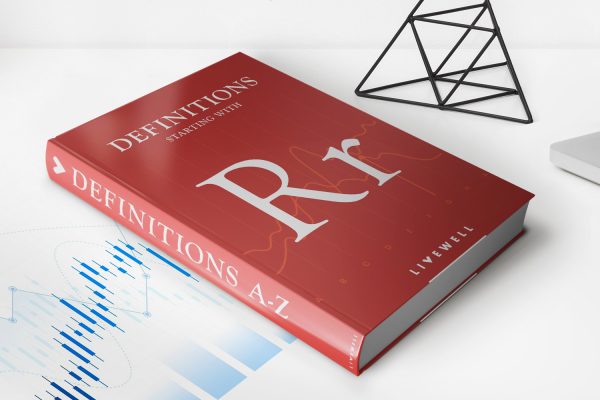

Finance
How To Be An Independent Insurance Adjuster
Modified: December 30, 2023
Learn the steps to become an independent insurance adjuster and start a rewarding career in the finance industry. Gain the skills and knowledge to handle insurance claims efficiently and confidently.
(Many of the links in this article redirect to a specific reviewed product. Your purchase of these products through affiliate links helps to generate commission for LiveWell, at no extra cost. Learn more)
Table of Contents
- Introduction
- Understanding the Role of an Independent Insurance Adjuster
- Developing Essential Skills for Independent Insurance Adjusters
- Getting the Right Education and Training
- Obtaining Necessary Licenses and Certifications
- Building a Strong Professional Network
- Joining Professional Organizations and Associations
- Utilizing Technology and Tools for Independent Insurance Adjusters
- Finding Job Opportunities as an Independent Insurance Adjuster
- Navigating the Claims Process as an Independent Insurance Adjuster
- Maintaining Professionalism and Ethics in the Industry
- Managing Finances and Growing Your Business as an Independent Insurance Adjuster
- Conclusion
Introduction
Being an independent insurance adjuster can be an incredibly rewarding career choice for those with a passion for finance and a knack for problem-solving. As an independent insurance adjuster, you have the opportunity to work with insurance companies, policyholders, and other stakeholders in assessing claims and determining appropriate settlements.
In this article, we will explore the ins and outs of being an independent insurance adjuster, from understanding the role to developing essential skills, obtaining licenses and certifications, and finding job opportunities. We will also provide tips on how to navigate the claims process, maintain professionalism and ethics, and manage your finances as an independent insurance adjuster.
But first, let’s take a closer look at the role of an independent insurance adjuster and why it can be a fulfilling career path.
The Role of an Independent Insurance Adjuster
As an independent insurance adjuster, your primary responsibility is to investigate insurance claims on behalf of insurance companies. Your objective is to determine the extent of damage or loss covered by the policy and negotiate a fair settlement with the policyholder. You may also be involved in inspecting property damage, gathering evidence, interviewing witnesses, and assessing liability.
Independent insurance adjusters play a crucial role in the insurance industry, enabling insurance companies to evaluate claims accurately and efficiently. Their expertise helps ensure that policyholders receive fair compensation and that the insurance company’s financial interests are protected.
What sets independent insurance adjusters apart is that they work on a contract basis, providing their services to multiple insurance companies rather than being employed by a single company. This gives them the freedom and flexibility to choose the assignments they take on and the clients they work with.
As an independent insurance adjuster, you may handle a variety of claims, including property damage, auto accidents, liability claims, and more. The scope of your work can vary depending on your specialization and the types of insurance policies you focus on.
Now that you have a better understanding of the role of an independent insurance adjuster, let’s explore the skills you need to succeed in this field.
Understanding the Role of an Independent Insurance Adjuster
Being an independent insurance adjuster involves a diverse range of responsibilities and requires a deep understanding of insurance policies and claims processing. Here, we will delve into the key aspects of the role to help you gain a comprehensive understanding.
Assessing Insurance Claims
One of the primary duties of an independent insurance adjuster is to assess insurance claims. This involves thoroughly examining the details of a claim, investigating the circumstances surrounding the incident, and evaluating the extent of the damages or losses. This assessment forms the foundation for determining the appropriate settlement amount.
Investigating Claims
To accurately assess a claim, an independent insurance adjuster conducts a comprehensive investigation. This may involve inspecting the damaged property, gathering evidence, interviewing witnesses, and reviewing documentation, such as police reports or medical records. The goal of the investigation is to establish the facts and gather information that will contribute to making an informed decision on the claim.
Negotiating Settlements
Once the assessment and investigation are complete, the independent insurance adjuster engages in negotiations with the policyholder or their representative. This process involves presenting a fair and reasonable settlement offer based on the coverage and policy terms. Effective negotiation skills are vital to navigate this process successfully and ensure a satisfactory resolution for both parties.
Managing Claims Process
As an independent insurance adjuster, you will oversee the entire claims process from start to finish. This includes documenting all interactions, maintaining detailed records, and ensuring compliance with company policies and regulatory requirements. You will also work closely with insurance companies, policyholders, and other stakeholders to provide updates, answer questions, and address any concerns throughout the claims process.
Communicating and Problem-Solving
Strong communication skills are paramount in this role. You will need to effectively communicate complex concepts and technical information to policyholders who may have limited knowledge of insurance terminology. Additionally, you will need to utilize your problem-solving skills to handle challenging or unique claim scenarios. The ability to think critically, analyze situations, and find creative solutions will be invaluable in ensuring fair and equitable outcomes.
Adhering to Regulations and Ethics
As an independent insurance adjuster, it is crucial to uphold the highest standards of ethics and professionalism. You must comply with applicable laws, regulations, and industry guidelines while treating all parties involved in a fair and unbiased manner. Upholding honesty, integrity, and confidentiality is essential to maintain trust and credibility in the industry.
Developing Customer Service Skills
Providing exceptional customer service is vital for fostering positive relationships with insurance companies, policyholders, and other parties involved in the claims process. Building rapport, demonstrating empathy, and effectively addressing concerns can contribute to a smoother and more satisfactory claims experience for everyone involved.
Understanding the multifaceted role of an independent insurance adjuster is essential before embarking on this career path. By possessing the necessary skills and knowledge, you can excel in assessing claims, managing the claims process, and effectively advocating for fair settlements. In the next section, we will explore the skills you need to develop to succeed as an independent insurance adjuster.
Developing Essential Skills for Independent Insurance Adjusters
As an independent insurance adjuster, there are several essential skills you need to develop in order to excel in your role. These skills will not only allow you to effectively assess insurance claims but also help you navigate the complexities of the claims process and build strong relationships with clients and stakeholders. Here are some key skills to focus on:
1. Strong Analytical Skills
As an independent insurance adjuster, you’ll need to analyze and assess a variety of insurance claims. This requires strong analytical skills to examine the details, gather relevant information, and make informed decisions. Being able to evaluate policy terms, understand coverage limits, and determine the extent of damages or losses will be essential in accurately assessing claims.
2. Excellent Communication Skills
Effective communication is crucial in every aspect of your role as an independent insurance adjuster. You’ll be interacting with policyholders, insurance companies, witnesses, and other stakeholders on a regular basis. Clear and concise communication will help you explain complex concepts, negotiate settlements, and provide updates throughout the claims process. Active listening skills are also important to ensure you fully understand the needs and concerns of all parties involved.
3. Detail-Oriented Approach
The ability to pay close attention to detail is vital in the field of insurance adjusting. You’ll need to carefully review claim documentation, policy terms, and other relevant information to make accurate assessments. Missing important details could lead to inaccurate evaluations and potentially unfair settlements. Developing a meticulous approach will help you identify relevant information and ensure that nothing is overlooked.
4. Strong Negotiation Skills
Negotiation is a key aspect of the claims process, and having strong negotiation skills can greatly benefit you as an independent insurance adjuster. You’ll be working to reach fair and equitable settlement agreements with policyholders or their representatives. Being able to effectively communicate and advocate for your position while understanding the needs of the other party will help you successfully navigate the negotiation process.
5. Time Management and Organizational Skills
Managing multiple claims simultaneously requires excellent time management and organizational skills. You’ll need to prioritize tasks, meet deadlines, and ensure that all necessary documentation and information are properly filed and maintained. Developing effective organizational systems and strategies will help you stay on top of your workload and provide efficient and timely service to your clients.
6. Empathy and Customer Service
Dealing with individuals who have experienced losses or damages can be emotionally challenging. Developing empathy and demonstrating excellent customer service skills will help you navigate these sensitive situations. Displaying empathy towards policyholders, showing understanding, and providing clear explanations can help build trust and rapport, contributing to a positive claims experience.
7. Continuous Learning and Adaptability
The field of insurance is constantly evolving, with new technologies, regulations, and policies emerging regularly. Being open to continuous learning and staying updated on industry trends will help you adapt to changes and provide the best possible service to your clients. This may involve participating in professional development courses, attending industry conferences, and staying informed about changes in insurance laws and regulations.
By focusing on developing these essential skills, you’ll be better equipped to succeed as an independent insurance adjuster. The next section will delve into the education and training you need to pursue in order to enter this field.
Getting the Right Education and Training
Education and training are crucial in preparing you for a successful career as an independent insurance adjuster. While there are no strict educational requirements to enter this field, acquiring the right knowledge and skills will significantly enhance your job prospects and credibility. Here are some steps you can take to get the right education and training:
Earn a Degree or Certification
While a specific degree isn’t mandatory, obtaining a degree in finance, business, or a related field can provide you with a solid foundation of knowledge. Many universities and colleges offer programs in insurance studies or risk management, which can be particularly beneficial. Additionally, there are specialized certifications, such as the Chartered Insurance Professional (CIP) designation, that can enhance your qualifications and demonstrate your commitment to professional development.
Complete Insurance Adjuster Courses
Consider enrolling in insurance adjuster courses offered by reputable institutions or online platforms. These courses cover essential topics such as insurance laws and regulations, claims handling procedures, policy interpretation, ethics, and negotiation skills. By completing these courses, you’ll gain a deeper understanding of the insurance industry and the specific skills required to succeed as an independent insurance adjuster.
Participate in Industry-Specific Training
Many insurance companies and professional organizations offer industry-specific training programs for aspiring insurance adjusters. These programs provide in-depth knowledge of the claims process, including hands-on experience through mock claims scenarios. Participating in these training programs can give you a competitive advantage and help you build practical skills that will be crucial in your day-to-day work as an independent insurance adjuster.
Seek Mentorship and On-The-Job Training
Obtaining real-world experience is invaluable for aspiring insurance adjusters. Consider reaching out to experienced professionals in the field and seeking mentorship opportunities. A mentor can provide guidance, offer insights into the industry, and help you navigate the challenges of the profession. Additionally, securing an entry-level position with an insurance company or adjusting firm can provide you with on-the-job training, allowing you to gain practical experience and further develop your skills.
Continuing Education
As an independent insurance adjuster, it is important to stay up-to-date with industry regulations, best practices, and emerging trends. Invest in continuing education by attending workshops, seminars, and webinars to enhance your knowledge and skills. This ongoing learning will not only keep you informed but also demonstrate your commitment to professional growth and development.
Networking Opportunities
Networking is a valuable aspect of the insurance industry. Attend industry events, join professional organizations such as the National Association of Independent Insurance Adjusters (NAIIA), and participate in online forums or discussion groups. Building a strong professional network can lead to job opportunities, mentorship, and collaborative partnerships that can benefit your career as an independent insurance adjuster.
By focusing on acquiring the right education and training, you’ll be better prepared to embark on a successful journey as an independent insurance adjuster. The next section will explore the licenses and certifications you may need to obtain to practice in this field.
Obtaining Necessary Licenses and Certifications
In order to practice as an independent insurance adjuster, it is important to obtain the necessary licenses and certifications. These credentials not only demonstrate your expertise in the field but also ensure that you comply with legal and regulatory requirements. Here are the key licenses and certifications you should consider pursuing:
State Licensing
Each state has its own licensing requirements for insurance adjusters. It is crucial to research and understand the specific requirements of the state(s) in which you plan to work. These requirements typically include completing a pre-licensing course, passing a state exam, and submitting an application along with the required fees. Some states may also have additional education or experience requirements. Make sure to stay updated with any continuing education or renewal requirements to maintain your license.
Adjuster Designations and Certifications
Obtaining professional designations and certifications in the insurance adjusting field can greatly enhance your credibility and open up additional opportunities. One of the most widely recognized designations is the Associate in Claims (AIC) offered by the Insurance Institute of America (IIA). This designation signifies your expertise in claims handling and demonstrates a commitment to professional development.
In addition to the AIC designation, there are several other certifications and designations specific to different areas of insurance adjusting, such as property and casualty, auto claims, or workers’ compensation. These certifications can be obtained through industry associations and organizations and often require passing an exam and fulfilling specific education or experience requirements.
Continuing Education
Continuing education is vital in the insurance adjusting profession, both for maintaining your licenses and certifications and for staying updated on industry best practices and evolving regulations. Many states require adjusters to complete a certain number of continuing education credits on an ongoing basis to renew their licenses. Similarly, professional designations often require continuing education to maintain their active status. Stay informed about the specific continuing education requirements for your licenses and certifications and seek out relevant courses and training opportunities.
Insurance Carrier Appointments
In addition to licensing and certifications, some insurance companies may require you to be appointed by them to handle claims on their behalf. This appointment process involves submitting an application to the carrier, undergoing a background check, and sometimes completing additional training specific to the company’s policies and procedures. Being appointed by reputable insurance carriers can enhance your professional standing and increase your chances of securing high-quality assignments.
Professional Liability Insurance
While not a requirement in all jurisdictions, it is strongly recommended for independent insurance adjusters to carry professional liability insurance, also known as errors and omissions (E&O) insurance. This insurance provides protection in case a client alleges financial loss or damages as a result of your professional services. It offers an extra layer of security and can help safeguard your business and personal assets.
Obtaining the necessary licenses and certifications demonstrates your professionalism and expertise as an independent insurance adjuster. It not only assures clients and employers of your qualifications but also ensures compliance with legal requirements and industry standards. In the next section, we will discuss the importance of building a strong professional network in the field of insurance adjusting.
Building a Strong Professional Network
Building a strong professional network is vital in the field of insurance adjusting. A robust network not only helps you stay connected with industry professionals but also opens doors to new opportunities, provides support and mentorship, and enhances your professional identity. Here are some key steps to effectively build and grow your professional network:
Attend Industry Events and Conferences
Industry events and conferences provide excellent opportunities to connect with professionals in the insurance adjusting field. Attend local and national events where you can meet adjusters, insurance company representatives, and industry leaders. Engage in conversations, exchange business cards, and follow up with new connections afterward. These events often include presentations and workshops that provide valuable insights into industry trends and advancements.
Join Professional Organizations and Associations
Joining professional organizations and associations specific to insurance adjusting can greatly expand your network. Organizations such as the National Association of Independent Insurance Adjusters (NAIIA) and the Claims and Litigation Management Alliance (CLM) provide platforms to connect with industry professionals, attend educational seminars, and access valuable resources. Participate actively in these organizations by volunteering for committees or attending networking events to strengthen your connections.
Utilize Social Media Platforms
Make use of social media platforms to connect with professionals in the insurance adjusting industry. LinkedIn, in particular, is a powerful tool for building your professional network. Join industry-specific groups, participate in discussions, and share insightful content to showcase your expertise. Engage with other professionals by commenting on their posts and offering valuable insights. This online networking can lead to valuable connections, collaboration opportunities, and job prospects.
Seek Mentorship and Professional Guidance
Find experienced professionals in the insurance adjusting field who can serve as mentors or provide professional guidance. These individuals can offer valuable advice, share their industry insights, and help you navigate your career path. Seek out opportunities to connect with them through industry events, professional organizations, or mutual connections. Remember to be respectful of their time and be open to their guidance and expertise.
Develop Lasting Relationships
Networking is not just about making connections, but also about building lasting relationships. Nurture your professional relationships by keeping in touch with your contacts. Take the time to meet for coffee or lunch, schedule regular check-ins, and offer support when needed. By cultivating strong relationships, you create a network of trusted contacts who can provide advice, refer clients, or collaborate on projects.
Offer Your Expertise and Support
Networking is a two-way street. Offer your expertise and support to others in your network. Share valuable insights through blog posts, articles, or presentations. Offer to help others with their projects or provide advice when requested. By being generous with your knowledge and support, you build a reputation as a helpful and reliable professional.
Stay Connected Online and Offline
Maintain regular communication with your network, both online and offline. Engage in discussions on social media, comment on relevant industry articles, and share interesting content. Attend networking events, industry conferences, and seminars to foster face-to-face connections. Regularly reach out to your contacts to check in on their professional lives and provide updates on your own. Keeping your network updated and staying engaged will help you establish strong relationships that can benefit your career in the long run.
Building a strong professional network takes time and effort, but the benefits it brings to your career as an insurance adjuster are invaluable. A robust network can provide you with support, guidance, and opportunities for professional growth. In the next section, we will explore the role of technology and tools in the field of insurance adjusting.
Joining Professional Organizations and Associations
Joining professional organizations and associations is a valuable step in building a successful career as an insurance adjuster. These organizations provide numerous benefits, including networking opportunities, access to industry resources, professional development programs, and a platform to advocate for the interests of insurance adjusters. Here are some reasons why you should consider joining professional organizations and associations:
Networking Opportunities
Professional organizations and associations bring together individuals from the insurance adjusting field, creating a vibrant networking community. By joining these organizations, you gain access to a pool of experienced professionals who can share valuable insights, offer career guidance, and provide support. The networking events, conferences, and online platforms offered by these associations enable you to connect with like-minded professionals, expand your professional network, and potentially discover new job opportunities.
Professional Development
Professional organizations and associations offer a wide range of professional development programs and resources. These may include webinars, workshops, conferences, and training courses specifically tailored to the needs of insurance adjusters. Engaging in these programs allows you to stay updated on industry best practices, improve your skills, and expand your knowledge base. Professional development not only enhances your expertise but also demonstrates your commitment to ongoing learning and improvement.
Access to Industry Resources
Professional organizations and associations are valuable sources of industry-specific resources and information. Membership often grants you access to publications, research papers, case studies, and industry reports to stay informed about the latest trends and advancements in insurance adjusting. These resources can help you stay ahead of the curve, make more informed decisions, and provide better service to your clients.
Advocacy and Representation
Joining professional organizations and associations gives you a platform to have your voice heard in the insurance adjusting industry. These organizations often advocate for the interests and concerns of their members, working to shape policies and regulations that impact the profession. By joining, you contribute to a collective voice that can influence positive change and ensure that the needs of insurance adjusters are being addressed.
Recognition and Credibility
Membership in professional organizations and associations adds credibility to your professional profile. It demonstrates your commitment to your career, ongoing learning, and staying informed about industry trends. It signals to clients, employers, and colleagues that you are a dedicated professional who is actively engaged in the field of insurance adjusting. This recognition can enhance your professional reputation and open doors to new opportunities.
Collaborative Opportunities
Professional organizations and associations provide the opportunity to collaborate with other members on projects, research, and initiatives. These collaborations can lead to valuable partnerships or business opportunities. By working together with like-minded professionals, you can leverage each other’s expertise and experiences to provide more comprehensive solutions for clients or tackle industry challenges.
When considering professional organizations and associations to join, research different options and consider their focus areas, reputation, and the benefits they offer. Look for organizations that align with your interests and goals as an insurance adjuster. Ultimately, becoming a member of a professional organization or association can help accelerate your career growth, provide access to valuable resources, and foster meaningful connections within the insurance adjusting community.
Utilizing Technology and Tools for Independent Insurance Adjusters
The field of insurance adjusting has been greatly impacted by technological advancements, offering independent adjusters a wide range of tools and resources to streamline their work processes and enhance efficiency. By effectively utilizing technology, independent insurance adjusters can improve their productivity, accuracy, and overall effectiveness in assessing and processing claims. Here are some key areas where technology and tools play a significant role:
Claims Management Software
Claims management software is a valuable tool that automates and streamlines various aspects of claim handling. It allows independent adjusters to track and manage the entire claims process, from initial intake to settlement. These software solutions often feature modules for documentation management, task assignment, communication tracking, and reporting. By utilizing claims management software, adjusters can stay organized, ensure timely follow-ups, and provide real-time updates to all stakeholders involved in the claims process.
Mobile and Remote Access
Mobile technology has revolutionized the way independent adjusters operate. Mobile applications and remote access tools enable adjusters to access claim information, communicate with clients or colleagues, and capture and submit documentation directly from the field. This allows adjusters to work efficiently, even when they are away from their desks. Mobile and remote access also improve the speed of communication and reduce delays in responding to client inquiries or addressing urgent claim issues.
Estimating and Assessment Tools
Estimating and assessment tools are vital for accurately determining the value of damages or losses. These tools utilize advanced algorithms and industry-specific data to provide adjusters with accurate estimates and assessments. By utilizing these tools, adjusters can ensure consistency and objectivity in their evaluations. They can also save time, as these tools automate manual calculations and provide access to comprehensive databases of pricing and replacement value information.
Virtual Inspection and Collaboration
With the advancement of technology, virtual inspection tools have become an essential part of the insurance adjusting process. These tools allow adjusters to conduct remote inspections using photos, videos, and virtual walkthroughs. Virtual inspections minimize the need for in-person visits and are particularly useful for situations where physical access is challenging or time-consuming. Additionally, virtual collaboration tools enable adjusters to work collaboratively with other stakeholders, such as contractors or experts, even when they are located in different geographic locations.
Data Analytics and Artificial Intelligence
Data analytics and artificial intelligence (AI) technologies are transforming the insurance industry, including the field of insurance adjusting. These technologies can analyze large sets of data, identify patterns, and provide valuable insights to adjusters. AI-powered tools can automate repetitive tasks, such as claims triaging, fraud detection, and policy analysis. These technologies help independent adjusters make informed decisions, detect potential issues, and improve their overall efficiency and accuracy.
Resource and Knowledge Sharing Platforms
Online platforms and knowledge-sharing communities provide independent adjusters with access to a wealth of information, resources, and professional expertise. These platforms allow adjusters to collaborate, seek guidance, and stay updated on industry trends. Online forums, discussion boards, and social media groups provide opportunities to connect with colleagues, ask questions, and share experiences. Online learning platforms and webinars offer training and educational resources to enhance adjusters’ skills and knowledge.
By effectively utilizing technology and tools, independent insurance adjusters can optimize their workflow, provide faster and more accurate service to clients, and stay ahead in the ever-evolving insurance industry. It is important for adjusters to continuously adapt and embrace technological advancements to remain competitive and deliver the best possible outcomes for their clients.
Finding Job Opportunities as an Independent Insurance Adjuster
As an independent insurance adjuster, it is essential to actively pursue job opportunities to grow your business and establish a successful career. While there are various avenues to explore, here are some key strategies to help you find job opportunities:
Network within the Industry
Networking is crucial in the insurance industry, and it can be especially beneficial for independent adjusters. Reach out to professionals in the insurance field, such as insurance agents, brokers, and insurance company representatives. Attend industry events, conferences, and local meetings to establish connections and let others know about your services. Building relationships and maintaining a strong professional network can lead to job referrals and opportunities in the future.
Build Alliances with Insurance Companies
Forge relationships with insurance companies and establish yourself as a reliable and competent independent insurance adjuster. Research insurance companies that work in your area of expertise and approach them with your services. Highlight your qualifications, experience, and commitment to delivering high-quality work. Collaborating with insurance companies can lead to job assignments, contract work, or being added to their roster of preferred adjusters.
Engage with Adjusting Firms
Adjusting firms often work as third-party administrators for insurance companies and handle a substantial volume of claims. Reach out to these firms and inquire about any available opportunities for independent adjusters. They may have ongoing or temporary assignments that could be a good fit for your skills and expertise. Establishing relationships with adjusting firms can provide a steady flow of job opportunities and help expand your client base.
Utilize Online Job Platforms
Online job platforms provide a convenient way to search for independent adjuster job opportunities. Websites and platforms specialized in insurance and claims adjusting often feature job listings for independent adjusters. Regularly check these platforms for new job postings and carefully review the requirements and expectations. Tailor your applications to highlight relevant experience and qualifications for better chances of success.
Consider Freelance and Contract Work
Freelancing and contract work can be a viable option for independent insurance adjusters. Many insurance companies and adjusting firms require additional support during busy periods or for specific projects. Seek out opportunities for short-term assignments or project-based work. This flexibility allows you to choose the assignments that align with your skills and schedule while building your reputation in the industry.
Market Yourself Effectively
Develop a strong professional brand and market yourself effectively to stand out in a competitive industry. Create a professional website or portfolio that highlights your expertise, qualifications, and successful past projects. This online presence can serve as a marketing tool and help potential clients and employers assess your capabilities. Utilize social media platforms to showcase your knowledge and engage with industry professionals. Actively share relevant content, provide insights, and participate in industry discussions to build your reputation as a knowledgeable and trusted independent adjuster.
Stay Informed about Industry Trends
Continuously educate yourself about the latest trends and advancements in the insurance industry. Keep up with industry publications, blogs, and newsletters to stay informed and adapt to changing market needs. By staying up-to-date, you can position yourself as a knowledgeable professional and better anticipate the demands of potential job opportunities.
Finding job opportunities as an independent insurance adjuster requires a proactive and strategic approach. By networking, building alliances, utilizing online platforms, and staying informed, you can create a strong foundation for securing rewarding job assignments and expanding your business as an independent insurance adjuster.
Navigating the Claims Process as an Independent Insurance Adjuster
As an independent insurance adjuster, successfully navigating the claims process is vital to providing excellent service to your clients and ensuring fair settlements. Here are key steps to effectively manage the claims process:
1. Initial Assessment and Investigation
When assigned a claim, begin by conducting a thorough assessment of the situation. Review the policy details, gather relevant documentation, and communicate with the policyholder to obtain necessary information. Conduct a comprehensive investigation, which may involve site inspections, interviews, obtaining expert opinions, and gathering evidence. This initial stage is crucial as it lays the foundation for accurate claim evaluation.
2. Determine Coverage and Liability
Once the initial assessment is complete, determine the coverage provided by the policy and assess liability. Analyze the policy terms, exclusions, and endorsements to understand the extent of coverage for the claim. Evaluate the incident and gather evidence to determine liability. This evaluation will help guide your decisions on the appropriate settlement amount.
3. Estimate Damages or Losses
Utilize specialized tools and industry databases to estimate damages or losses accurately. Depending on the nature of the claim, employ estimating software, contractor estimates, or industry-specific pricing guides to calculate the potential costs of repairs or replacements. Ensure that your estimation is fair, objective, and supported by relevant evidence.
4. Communicate with Stakeholders
Maintaining clear and regular communication with all stakeholders is essential throughout the claims process. Keep the policyholder informed about the progress of their claim, answer their questions, and address their concerns promptly. Establish effective communication channels with insurance company representatives, contractors, legal counsel, and any other involved parties to ensure a comprehensive and coordinated claim handling process.
5. Negotiate and Settle the Claim
The negotiation stage is where your negotiation skills come into play. Present your assessment of the claim to the policyholder or their representative, highlighting the evidence and reasoning behind your evaluation. Listen actively and empathetically to the policyholder’s perspective and work towards a fair and satisfactory settlement. Negotiate openly, emphasizing the policy terms, industry standards, and relevant precedents to support your position. Find a balance that aligns the needs of the policyholder, the insurance company, and the policy provisions.
6. Document and Report
Thorough and accurate documentation is crucial throughout the claims process. Keep meticulous records of all communications, investigation findings, evaluations, negotiations, and settlement agreements. Maintain clear and detailed reports that outline the rationale behind your decisions and support the settlement amount. These documents provide a comprehensive record of your handling of the claim and serve as a reference for future inquiries or disputes.
7. Handle Challenges and Disputes
Challenges and disputes may arise during the claims process. Be prepared to handle conflicts with professionalism, utilizing your skills in negotiation and conflict resolution. If disagreements persist, consider involving the assistance of mediators or arbitrators to reach a resolution. Always maintain objectivity, adhere to ethical standards, and ensure that your decisions are based on sound judgment and the relevant policy provisions.
8. Provide Timely and Efficient Service
Timeliness and efficiency are essential in the claims process. Aim to handle claims promptly, respond to inquiries within reasonable timeframes, and provide regular updates to policyholders and insurance company representatives. Focus on delivering exceptional customer service by being accessible and responsive throughout the process.
By effectively navigating the claims process, you demonstrate your expertise as an independent insurance adjuster and ensure that policyholders receive fair and timely resolutions to their claims. Maintain professionalism, adhere to ethical principles, and continuously enhance your skills to provide outstanding service to your clients.
Maintaining Professionalism and Ethics in the Industry
Maintaining professionalism and ethics is of utmost importance for independent insurance adjusters. Upholding high standards in your work not only ensures fair treatment of all parties involved but also safeguards your professional reputation. Here are key principles to help you maintain professionalism and ethics in the insurance adjusting industry:
1. Integrity and Honesty
Demonstrate integrity and honesty in all aspects of your work as an independent insurance adjuster. This includes being truthful in your communications, providing accurate information to policyholders, insurance companies, and other stakeholders, and avoiding conflicts of interest. Uphold the highest ethical standards when handling claims, ensuring that your actions are driven by integrity and the best interests of all parties involved.
2. Confidentiality and Privacy
Respect the importance of confidentiality and privacy in the insurance industry. Safeguard sensitive information and maintain the privacy of policyholders and other involved parties. Adhere to industry regulations regarding the handling and disclosure of private information. Protecting the confidentiality of individuals and maintaining their trust is essential for maintaining professionalism in the insurance adjusting field.
3. Objectivity and Impartiality
As an independent insurance adjuster, it is vital to embrace objectivity and impartiality to ensure fair assessments and settlements. Avoid any biases or assumptions that could impact the accuracy and fairness of your evaluations and decisions. Base your assessments on facts, evidence, and policy provisions, rather than personal opinions or external influences.
4. Compliance with Laws and Regulations
Adhere to all applicable laws and regulations governing the insurance adjusting industry. Stay informed about changes in regulations and ensure that your practices align with legal requirements. This includes obtaining and maintaining the necessary licenses, certifications, and permits as required by your jurisdiction. Compliance with laws and regulations demonstrates your commitment to professionalism and ethical conduct in your work.
5. Professional Development
Continuously invest in professional development to enhance your skills and stay updated on industry practices. Participate in training programs, attend seminars, and engage in self-study to expand your knowledge base. Staying at the forefront of industry advancements and best practices enables you to provide the highest level of service to your clients while demonstrating a commitment to your professional growth and improvement.
6. Clear Communication
Effective and transparent communication is key to maintaining professionalism in the insurance adjusting field. Clearly convey information to policyholders, insurance company representatives, and other stakeholders involved in the claims process. Use plain language to explain complex terms and concepts, ensuring that all parties understand the details of the claim and the settlement process. Actively listen to the concerns of policyholders and respond in a timely and respectful manner.
7. Collaboration and Cooperation
Maintain a cooperative and collaborative approach when working with policyholders, insurance company representatives, and other professionals in the insurance industry. Foster an environment of open communication, respect, and teamwork. Seek opportunities to collaborate with others to ensure the best possible outcomes for claimants and insurance companies. By working together, you can improve the efficiency and effectiveness of the claims process.
8. Professionalism in Conduct and Appearance
Present yourself in a professional manner when representing yourself as an independent insurance adjuster. Maintain a professional appearance when meeting with clients or attending industry events. Conduct yourself with courtesy and professionalism in all interactions, whether in-person or through digital channels. Respecting others, being punctual, and demonstrating a positive attitude are key elements of professionalism.
By upholding professionalism and ethics, independent insurance adjusters contribute to the reputation and credibility of the insurance industry as a whole. By adhering to these principles and continuously improving your skills and knowledge, you establish yourself as a trusted professional who can effectively navigate the complexities of the insurance adjusting industry.
Managing Finances and Growing Your Business as an Independent Insurance Adjuster
Effectively managing your finances and growing your business as an independent insurance adjuster is crucial for long-term success in the field. Here are key strategies to help you manage your finances and fuel the growth of your business:
1. Establish a Budget
Create a comprehensive budget that outlines your income and expenses. Track your earnings, including fees and commissions, and monitor your expenses, such as office supplies, technology, professional development, and marketing efforts. A well-planned budget allows you to assess your financial health, allocate resources effectively, and make informed financial decisions.
2. Build an Emergency Fund
An emergency fund is essential for independent insurance adjusters who rely on consistent income. Establish a savings account to set aside funds that can cover unexpected expenses or periods of lower income. This will provide a financial safety net and help secure your business during challenging times.
3. Set Competitive Rates
Determine competitive and fair rates for your services. Consider factors such as your level of experience, expertise, market demand, and the complexity of the claims you handle. Research industry standards and consult with other professionals in the field to ensure your rates align with market expectations. Continually evaluate and adjust your rates as necessary to remain competitive and reflect the value you provide.
4. Manage Cash Flow
Efficient cash flow management is essential for independent insurance adjusters. Ensure that you have a system in place to track and collect payments from clients promptly. Set clear payment terms, send timely invoices, and follow up on any overdue payments. Consider implementing electronic payment options to streamline the payment process and improve cash flow.
5. Invest in Marketing and Advertising
Promote your services and attract new clients by investing in marketing and advertising initiatives. Establish an online presence through a professional website, social media profiles, and industry-specific directories. Develop a clear and compelling value proposition that differentiates you from competitors. Utilize digital marketing strategies such as search engine optimization (SEO), pay-per-click advertising, and content marketing to increase your online visibility and attract potential clients.
6. Foster Client Relationships
Building strong relationships with clients is vital for business growth. Provide excellent customer service, communicate regularly, and exceed client expectations. Engage in professional and courteous communication, and seek feedback to continually improve your services. Satisfied clients can become repeat customers, provide referrals, or recommend your services to others, contributing to the growth of your business.
7. Continuously Learn and Expand Your Services
Stay updated on industry trends, regulations, and emerging technologies. Continuously invest in professional development to expand your knowledge and skills. Consider diversifying your service offerings to cater to a broader range of insurance claims or specialize in a specific niche. This expands your market reach and positions you as an expert in your chosen area.
8. Seek Collaboration and Partnerships
Collaborate and form strategic partnerships with other professionals or businesses in the insurance industry. This can include relationships with insurance agencies, adjusting firms, contractors, or legal and medical professionals. By working together, you can offer comprehensive services to clients, expand your network, and tap into new sources of business opportunities.
By effectively managing your finances, setting competitive rates, investing in marketing efforts, and continually expanding your knowledge and services, you can position your business for growth as an independent insurance adjuster. Maintaining financial stability and nurturing client relationships are key factors in building a successful and thriving business.
Conclusion
Becoming an independent insurance adjuster requires a unique combination of finance knowledge, problem-solving skills, and a dedication to professionalism and ethics. Throughout this article, we have explored the various aspects of being an independent insurance adjuster, from understanding the role to developing essential skills, obtaining licenses and certifications, and finding job opportunities.
As an independent insurance adjuster, it is crucial to continuously invest in your education and training, staying updated on industry advancements and regulations. Building a strong professional network through networking events, professional organizations, and online platforms helps expand your reach and fosters collaborations with others in the industry.
Effectively utilizing technology and tools enhances your efficiency and accuracy in assessing and processing claims. Leveraging claims management software, estimating tools, and virtual inspection platforms streamlines your work processes and improves customer service.
Maintaining professionalism and ethics is essential in the insurance adjusting industry. Upholding integrity, objectivity, and confidentiality instills trust in your clients and colleagues. By providing outstanding customer service, practicing clear communication, and cooperating with others in the industry, you can establish a reputation as a trusted and reliable independent insurance adjuster.
Managing your finances and strategically growing your business are key to long-term success as an independent insurance adjuster. Setting competitive rates, actively marketing your services, and investing in continuous learning and professional development contribute to expanding your client base and increasing your business opportunities.
In conclusion, being an independent insurance adjuster offers a rewarding career path for those with a passion for finance and a desire to help policyholders through the claims process. By honing your skills, maintaining professionalism, embracing technology, and fostering strong relationships, you can thrive as an independent insurance adjuster in this dynamic and important field.














